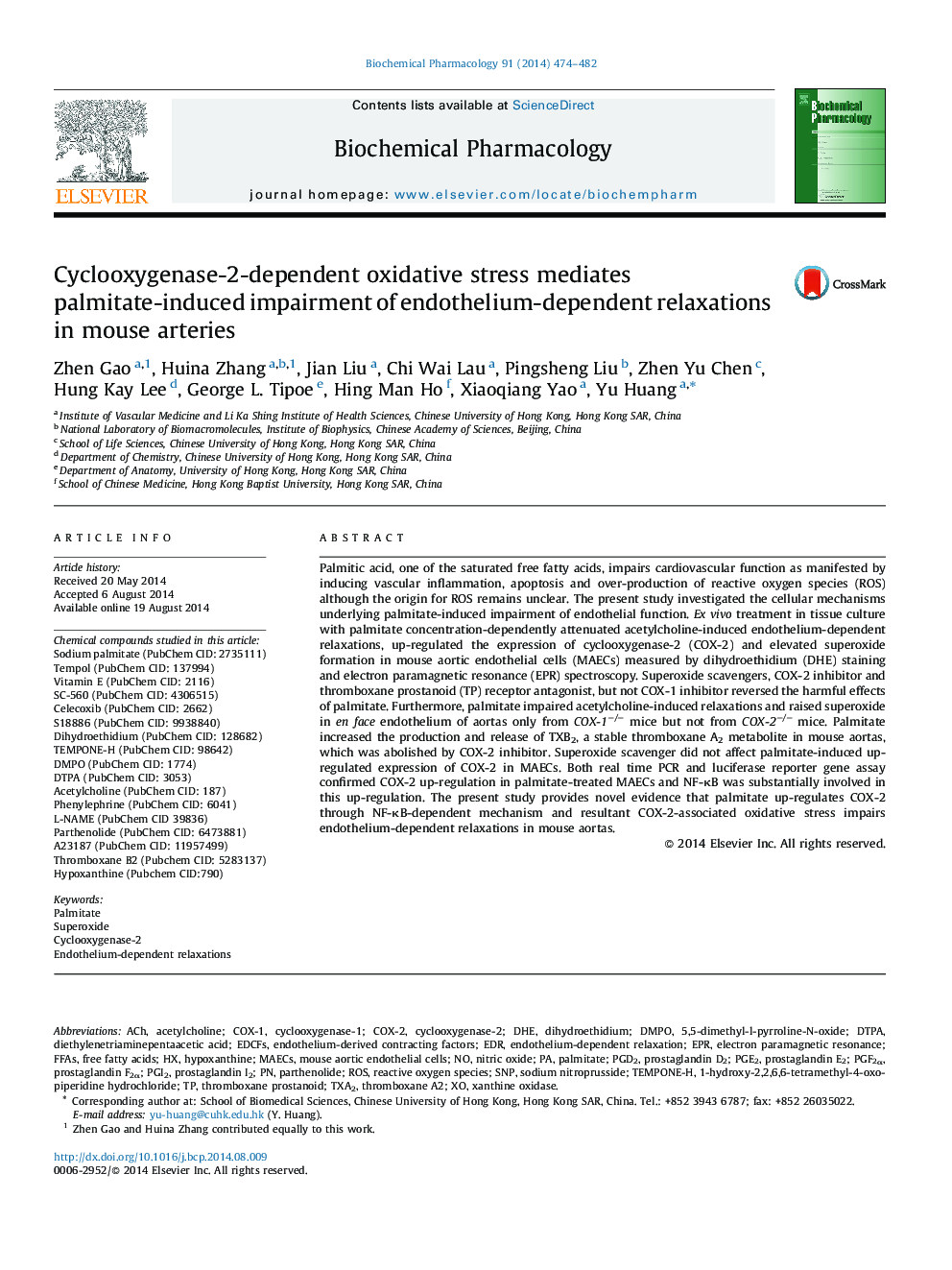| کد مقاله | کد نشریه | سال انتشار | مقاله انگلیسی | نسخه تمام متن |
|---|---|---|---|---|
| 2512175 | 1118321 | 2014 | 9 صفحه PDF | دانلود رایگان |
Palmitic acid, one of the saturated free fatty acids, impairs cardiovascular function as manifested by inducing vascular inflammation, apoptosis and over-production of reactive oxygen species (ROS) although the origin for ROS remains unclear. The present study investigated the cellular mechanisms underlying palmitate-induced impairment of endothelial function. Ex vivo treatment in tissue culture with palmitate concentration-dependently attenuated acetylcholine-induced endothelium-dependent relaxations, up-regulated the expression of cyclooxygenase-2 (COX-2) and elevated superoxide formation in mouse aortic endothelial cells (MAECs) measured by dihydroethidium (DHE) staining and electron paramagnetic resonance (EPR) spectroscopy. Superoxide scavengers, COX-2 inhibitor and thromboxane prostanoid (TP) receptor antagonist, but not COX-1 inhibitor reversed the harmful effects of palmitate. Furthermore, palmitate impaired acetylcholine-induced relaxations and raised superoxide in en face endothelium of aortas only from COX-1−/− mice but not from COX-2−/− mice. Palmitate increased the production and release of TXB2, a stable thromboxane A2 metabolite in mouse aortas, which was abolished by COX-2 inhibitor. Superoxide scavenger did not affect palmitate-induced up-regulated expression of COX-2 in MAECs. Both real time PCR and luciferase reporter gene assay confirmed COX-2 up-regulation in palmitate-treated MAECs and NF-κB was substantially involved in this up-regulation. The present study provides novel evidence that palmitate up-regulates COX-2 through NF-κB-dependent mechanism and resultant COX-2-associated oxidative stress impairs endothelium-dependent relaxations in mouse aortas.
PA up-regulates COX-2 involving NF-κB activation and subsequent COX-2-derived prostanoids stimulate TP receptors, resulting in ROS overproduction in endothelial cells, thus lowering NO bioavailability and impairing endothelial function.Figure optionsDownload as PowerPoint slide
Journal: Biochemical Pharmacology - Volume 91, Issue 4, 15 October 2014, Pages 474–482
